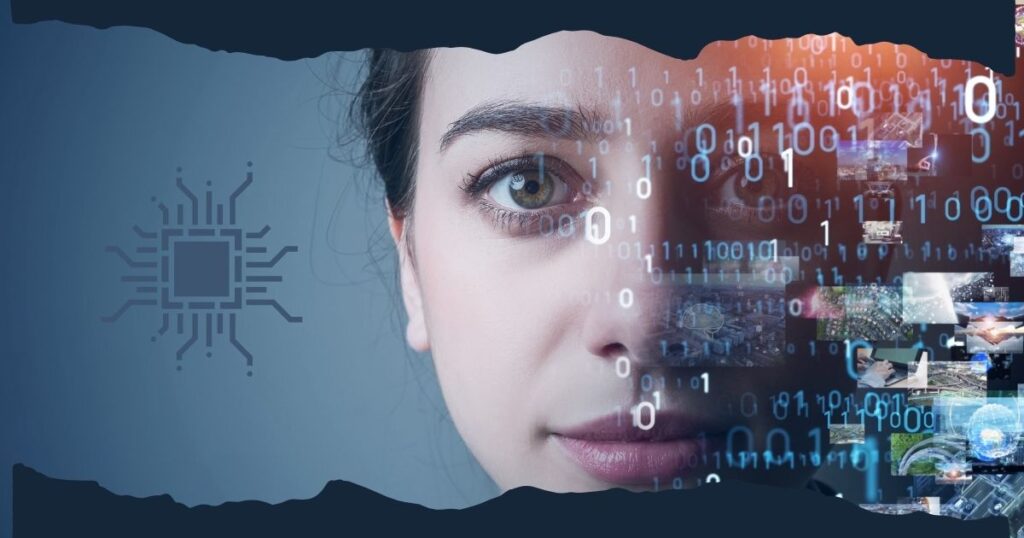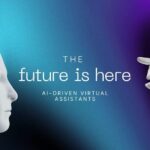Discover How Artificial Intelligence (AI) Transforms Our Lives and Jobs at Warp Speed
Artificial intelligence (AI) is revolutionizing our daily lives and professional environments at a rapid pace. With the aid of AI-powered tools, our traditional ways of living and working are being transformed. These advanced technologies are reshaping industries and opening up new possibilities. The impact of AI is profound, propelling us into an era where the power of intelligent machines is reshaping our world.
Artificial Intelligence (AI) has become a buzzword in recent years, captivating the minds of researchers, technology enthusiasts, and businesses alike. This revolutionary technology has transformed every aspect of our lives, disrupting traditional ways of living and working. In this article, we will explore the profound impact of AI on our daily lives and jobs, showcasing how this powerful technology is propelling us into a new era.

The Rise of AI
AI has rapidly evolved over the past decade, leading to groundbreaking innovations and advancements. From self-driving cars to voice assistants, AI has become an integral part of our lives. It has the ability to analyze vast amounts of data, make accurate predictions, and mimic human intelligence. This transformative technology has opened up a world of possibilities, reshaping industries and revolutionizing the way we live and work.
AI has made a profound impact on various aspects of our daily lives, enhancing convenience, efficiency, and productivity. Let’s dive into how AI has transformed different sectors:
How is AI transforming the healthcare industry?
AI has revolutionized healthcare by enabling early disease detection, personalized treatments, and improved patient care. With AI-powered diagnostic tools, doctors can analyze medical images more accurately and identify potential health risks. AI-powered chatbots provide patients with virtual consultations and round-the-clock assistance, improving access to healthcare services.
Here are several key areas where AI is making a significant impact:
- Improving Diagnostics: AI can assist healthcare professionals in diagnosing patients by analyzing symptoms, suggesting personalized treatments, and predicting risk. It can also detect abnormalities in medical results.
- Workforce Changes: AI is expected to automate about 15% of current work hours in healthcare, freeing up healthcare professionals to focus more on patient care. The nature of work will change, with AI taking over routine, administrative tasks, and augmenting clinical activities.
- Introduction of New Professionals: AI will introduce new roles that intersect medical and data-science expertise. Examples include data architects, who will be crucial in defining how to record, store, and structure clinical data, and leaders in data governance and data ethics.
- Long-term Impact: In the long term, AI systems will become more intelligent, enabling a shift from the traditional one-size-fits-all form of medicine to a preventative, personalized, data-driven disease management model that achieves improved patient outcomes in a more cost-effective delivery system.
What impact does AI have on education?
AI has transformed the education sector by personalizing learning experiences and improving student outcomes. Intelligent tutoring systems provide tailored teaching methods to students, identifying their strengths and weaknesses. AI-powered virtual classrooms facilitate remote learning, connecting students and educators from around the world. AI also enables automated grading, freeing up educators’ time for more personalized interactions.
While the question did not provide specific search results related to AI’s impact on education, it is widely recognized that AI is revolutionizing the education sector in various ways:
- Personalized Learning: AI can tailor educational content to individual students’ needs, making learning more efficient and effective.
- Automated Administrative Tasks: AI can automate administrative tasks such as grading and scheduling, freeing up time for educators to focus more on teaching and less on paperwork.
- Intelligent Tutoring Systems: AI can provide personalized tutoring to students, giving them additional support in areas where they struggle.
- Data Analysis: AI can analyze large amounts of data to identify trends and patterns that can help improve educational systems and strategies.
How is AI revolutionizing the retail sector?
In the retail industry, AI has revolutionized customer experiences and optimized business operations. AI-powered recommendation systems analyze customer data to provide personalized product suggestions. Chatbots assist customers with their inquiries, improving customer support. Additionally, AI streamlines inventory management and supply chain operations, leading to improved efficiency and reduced costs.
AI is revolutionizing the retail sector by:
- Predicting Consumer Behavior: AI can analyze data to predict consumer behavior and preferences, helping retailers to tailor their offerings and marketing strategies.
- Supply Chain Management: AI can optimize supply chain management, predicting demand, and managing inventory more efficiently.
- Personalized Shopping Experience: AI can provide a personalized shopping experience by recommending products based on a customer’s past purchases and browsing history.
- Chatbots and Virtual Assistants: AI-powered chatbots and virtual assistants can provide customer support and advice, improving the shopping experience.
What are the benefits of AI in the manufacturing industry?
AI has automated various aspects of the manufacturing industry, leading to increased efficiency and productivity. Robots equipped with AI capabilities can perform repetitive tasks, reducing human errors and enhancing production speed. AI-powered predictive maintenance systems monitor equipment health, enabling proactive maintenance and minimizing downtime.
AI brings numerous benefits to the manufacturing industry, including:
- Predictive Maintenance: AI can predict when equipment may fail or need maintenance, reducing downtime and saving costs.
- Quality Control: AI can improve quality control by identifying defects or inconsistencies in products.
- Supply Chain Optimization: AI can optimize the supply chain by predicting demand and managing inventory.
- Safety: AI can improve safety by monitoring conditions and identifying potential hazards.
How is AI changing the finance sector?
AI is revolutionizing the finance sector by improving data analysis, risk assessment, and fraud detection. AI algorithms analyze vast amounts of financial data to identify trends, make predictions, and inform investment strategies. AI-powered chatbots provide personalized financial advice to customers, enhancing the overall banking experience.
AI is transforming the finance sector in several ways:
- Fraud Detection: AI can analyze large amounts of data to identify patterns and anomalies that could indicate fraudulent activity.
- Risk Assessment: AI can assess risk more accurately, helping financial institutions make better lending decisions.
- Customer Service: AI-powered chatbots can provide customer service, answering questions and providing information 24/7.
- Algorithmic Trading: AI can analyze market conditions and execute trades at optimal times, improving profitability.
The Future of AI

The rapid advancement of AI indicates a promising future filled with new possibilities. As AI continues to evolve, it is crucial to address ethical and societal challenges. Ensuring transparency, accountability, and unbiased decision-making within AI systems is of utmost importance.
In conclusion, AI has transformed our lives and jobs at an incredible pace. From healthcare to education, retail to transportation, AI has revolutionized industries and opened up new opportunities. As we navigate this AI-powered world, it is essential to embrace its potential, while also being mindful of its impact. The possibilities are endless, and as AI continues to evolve, it will undoubtedly shape our future in unimaginable ways.



